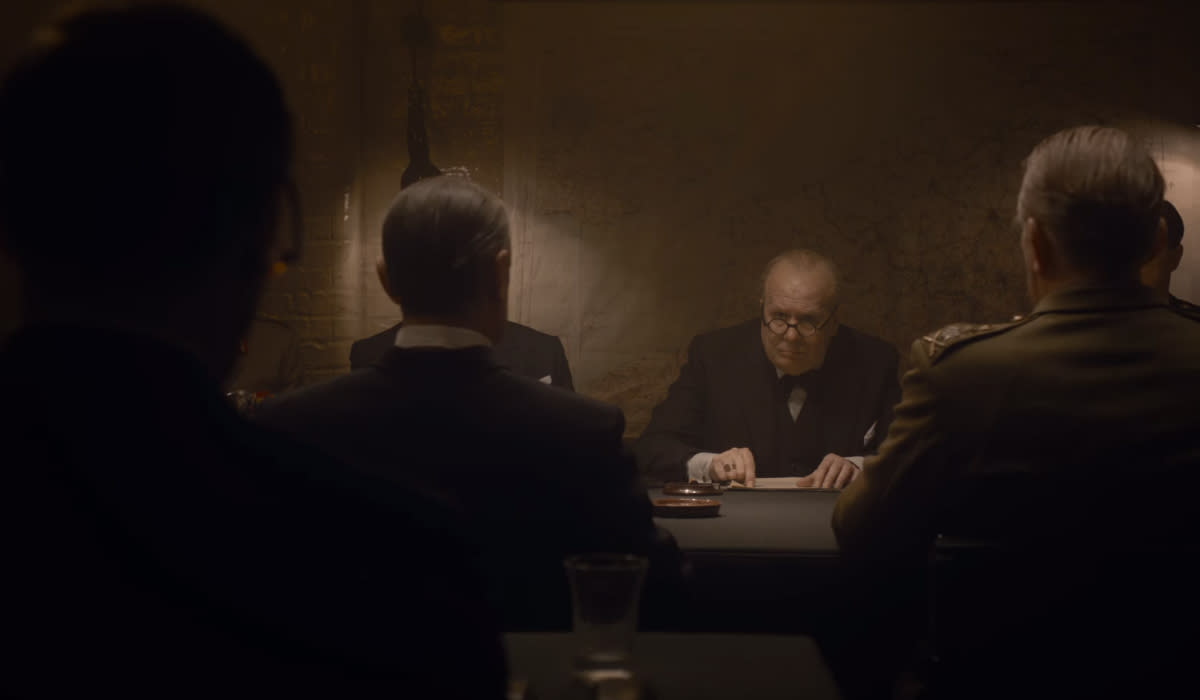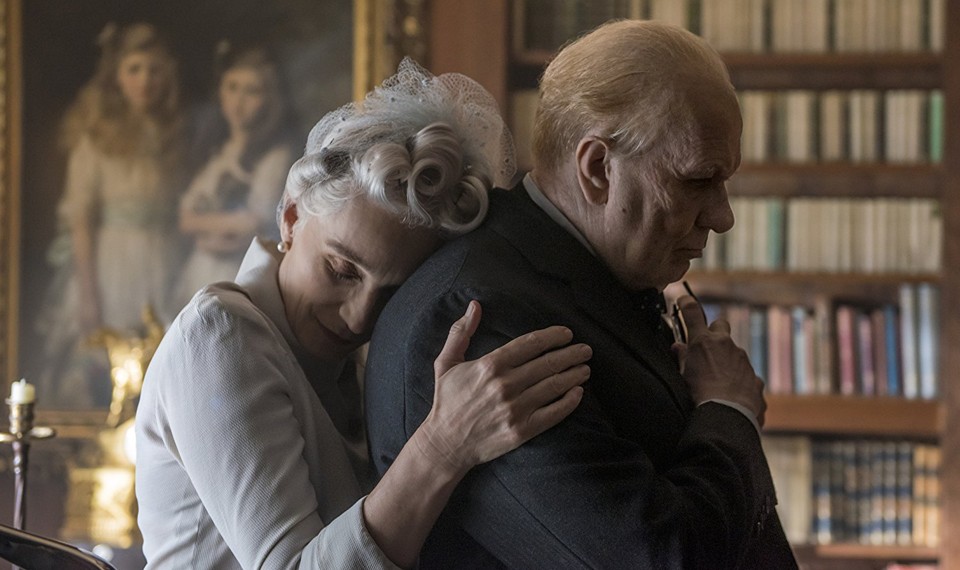The Trump Justice Department should reopen the investigation of Paul Combetta.
By Andrew C. McCarthy
December 30, 2017
Paul Combetta, Platte River Networks, asserts his 5th amendment right while testifying on Capitol Hill in Washington, Tuesday, Sept. 13, 2016, before the House Oversight and Government Reform Committee hearing on ‘Examining Preservation of State Department Records.’ (AP Photo/Molly Riley)
New Year’s Eve gets people thinking about resolutions. Alas, when a year passes, a mothballed prosecutor finds himself thinking about the statute of limitations. As 2018 beckons, it has me thinking about Paul Combetta — the Platte River Networks technician who used the “BleachBit” program to destroy thousands of Hillary Clinton’s emails when they were under congressional subpoena and preservation orders.
It is not just the tick-tock of the criminal clock that has me thinking about Combetta — about how much longer his obstructive destruction of government files in March 2015 could still be subject to investigation and prosecution. The statute of limitations is five years. Time’s a-wastin’, but there could still be a live case for a while.
The other reason Combetta leaps to the front of the mind is . . . Robert Mueller.
Deputy Attorney General Rod Rosenstein assures us that Special Counsel Mueller is doing a first-rate job probing the possible (but thus far undiscovered) complicity of Trump associates in Russia’s election meddling. That being the case, I’m wondering: Would the Trump Justice Department be up for applying Mueller’s approach to the Clinton caper?
No, I’m not suggesting that DOJ direct the FBI to break into Mr. Combetta’s home with guns drawn in the dead of night, as Mueller did with former Trump campaign chairman Paul Manafort. I’d save the brass-knuckles tactics for hardened criminals, as the law intends. I’m talking about the aggressive but wholly legitimate step Mueller has taken: Calling BS on attempts by criminal suspects to use lawyers to conceal their schemes.
Back in November, we catalogued the stark contrasts between Mueller’s brand of hardball and the kid-gloves treatment given to subjects of the Clinton-emails investigation. The most significant of these involved the attorney–client privilege. Mueller persuaded a federal judge to force an attorney for Manafort and his co-defendant (Richard Gates) to testify against them in the grand jury.
Naturally, the defense attempted to rely on the attorney–client privilege to shield communications between the lawyer and the suspects from disclosure. But Mueller successfully countered that, under the crime-fraud exception to that privilege, communications are not deemed confidential if they are in furtherance of a crime, fraud, or civil wrong — which includes a scheme to dupe the government or undermine an investigation.
Of course, in the Clinton probe — which Attorney General Loretta Lynch instructed FBI director James Comey to refer to as a “matter,” lest anyone get the impression the Federal Bureau of Investigation was doing, you know, an investigation — the Obama Justice Department resisted using the grand jury at all, let alone using it to pry information from lawyers. But hyping the attorney–client privilege into an impregnable barrier was the key to whitewashing the case: Witnesses couldn’t be questioned about the process of reviewing Clinton’s emails and destroying tens of thousands of them, about Clinton’s transferring to them classified emails that they lacked necessary clearances to possess, about their storage of classified emails on their private laptops, and so on — all because they were lawyers and such questioning would purportedly violate the attorney–client privilege.
It was unmitigated nonsense, but very useful nonsense. It enabled the Obama Justice Department to feign the appearance of a thoroughgoing inquiry: No, no, the fix wasn’t in; they tried really hard to make the case but, gee whiz, they ran into some legal restrictions that just couldn’t be overcome.
Mueller, to the contrary, is not merely going through the motions. He is doing what the Justice Department usually does: working hard to make the case and knocking over phony roadblocks placed in his path. When the defense says, “attorney–client privilege,” Mueller responds, “Tell it to the judge.” They lose, as he knew they would; then he marches the lawyer in to the grand jury, gets the testimony, and indicts the clients.
See how this works?
I’m thinking it’s a good time for the Justice Department, under new management (the Trump-appointed management that hired Mueller), to show Paul Combetta how it works.
Let’s review a few key facts.
On March 2, 2015, the New York Times broke the news that Mrs. Clinton, as secretary of state, had used a homebrew server system for all her official email. The House committee investigating the 2012 Benghazi jihadist attack immediately issued letters directing that the emails be preserved, along with a subpoena for them. The server system storing Clinton’s emails was then housed at a private contractor, Platte River Networks (PRN), which by no later than March 9, 2015, was aware of the directive that the emails be preserved. (FBI Clinton File, Part 3, p. 18 — First Combetta FBI interview, p. 5, also paginated HRC-76).
Combetta was the PRN technician who managed the Clinton server system. Throughout March 2015, he communicated several times with Mrs. Clinton’s agents, particularly Cheryl Mills (Clinton’s confidant and her chief of staff at the State Department). With the Obama Justice Department’s indulgence, Mills purported to act as Clinton’s attorney in connection with the emails investigation, even though Mills was ineligible to represent Clinton under legal and ethical rules, and because Mills herself was an actor in the facts that were under inquiry.
It was in the course of these communications with Clinton’s agents that Combetta deleted Clinton’s emails and attempted to destroy them with BleachBit so they could not be fully reconstructed. In a nutshell, Combetta had a call with Clinton underlings on March 25, though he has not disclosed which underlings they were, or what was said in the conversation. Two days later (March 27), Clinton lawyer David Kendall informed the House committee that there were no longer any existing emails from Clinton’s tenure. PRN logs indicate that Combetta deleted emails and installed BleachBit on March 31. On that same day, Combetta had a conference call with Mills and Kendall. (FBI Clinton File, Part 3, pp. 18–19.)
In an early FBI interview on February 18, 2016 (FBI Clinton File, Part 3, pp. 14–20), the recalcitrant Combetta lied to the agents, falsely telling them he did not recall deleting the emails. He also refused to answer questions about his conversations with Clinton’s lawyers, particularly the March 25 and 31 conference calls. Strangely, he invoked the attorney–client privilege. This made no sense: Clinton’s lawyers were not his lawyers, and in any event, the privilege would not cover communications related to the destruction of evidence or obstruction of a congressional investigation.
(Because an FBI report refers to the “Fifth Amendment” (see FBI Clinton File, Part 3, p. 18), there has been some suggestion that Combetta also invoked his privilege against self-incrimination. While not impossible, this would have been inconsistent with Combetta’s approach to avoiding self-incrimination, which was to lie, not to refuse to answer. A more comprehensive FBI report says Combetta actually invoked the attorney–client privilege. See FBI Clinton File, Part 1, p. 19 — also paginated HRC-19.)
In most Justice Department cases, and certainly in the Mueller investigation, lying to the FBI is treated as what it is — a felony. The specter of prosecution is used to pressure low-ranking players to plead guilty to their crimes and cooperate against more culpable suspects. But this was the Obama Justice Department’s “investigation” of Hillary Clinton, so the felony was instead treated as the occasion to reward Combetta with immunity.
Figuring he was home free, Combetta promptly revised his story in a subsequent FBI interview on May 3, 2016. (FBI Clinton File, Part 3, pp. 21–27.) Now he admitted he had destroyed the emails, but claimed he had done it on his own. Like a bolt from the blue (what Combetta called his “Oh s**t!” moment), he suddenly remembered that Mills had told him, five or six months earlier, to “change the retention policy” so that Clinton’s emails would be deleted automatically after 60 days. Because it was beyond this 60-day window by late March, he supposedly took it on himself to delete the emails, and to apply the BleachBit program for good measure. We’re to believe his contacts with the Clinton camp had nothing to do with it.
On the matter of the March 25 call (i.e., shortly before he started deleting and bleaching), Combetta denied being able to remember it — even being shown an email about the call, which made a cryptic reference to “backups,” did not jar Combetta’s conveniently faulty memory. What is more astonishing, assuming the FBI’s report reflects the full scope of the later interview, is that Combetta was not even asked about his conversation with Mills and Kendall on March 31 — the day he (just coincidentally, I’m sure) deleted and destroyed Clinton’s subpoenaed emails.
In other words, once he got immunity, Combetta admitted the thing he had previously lied about (i.e., the only thing he calculated the government might be able to prosecute him for), but claimed not to remember anything that might implicate anyone else in such crimes as obstruction and the destruction of government files. Moreover, it appears that the FBI deferred to Combetta’s prior invocation of the attorney–client privilege to avoid discussing the March 31 conversation with Kendall and Mills. This expansive interpretation of the privilege would be absurd, yet fully consistent with the Obama Justice Department’s indulgence of privilege claims throughout the Clinton probe.
But here’s the thing — two things, actually. First, the Justice Department’s immunity practice is designed, for obvious reasons, to prevent just this kind of gamesmanship. Immunity is conditional on the witness’s providing truthful, accurate, and complete information. If in the judgment of the investigators the witness gives an account that is misleading and withholds information, the immunity can be revoked. The witness may then be prosecuted for his crimes, in addition to any false statements he has made while feigning cooperation.
Second, the crime-fraud exception to the attorney–client privilege is designed, for equally obvious reasons, to prevent the insinuation of lawyers from blocking the discovery of corrupt schemes to destroy evidence, influence testimony, and undermine investigations. As Mueller has shown, even if the lawyer is an innocent dupe rather than a knowing conspirator, communications that further a crime or fraud are not privileged.
Should there be a wholesale reopening of the Clinton investigation? I believe so, but that bridge can be crossed later. For now, how about simply reopening the Combetta investigation?
The Trump Justice Department should appoint a solid United States attorney and some hard-nosed FBI agents from outside Washington, with no prior involvement in the Clinton probe, and instruct them to follow Mueller’s aggressive model in investigating Combetta. In return for the immunity he should never have been granted in the first place, the PRN tech should be compelled to reveal exactly what he was told in these conversations with Clinton lawyers. If he refuses, Combetta should be prosecuted, at a minimum, for lying to the FBI and obstructing Congress’s Benghazi investigation.
As Robert Mueller might say of Paul Manafort: That should get his attention.
— Andrew C. McCarthy is a contributing editor of National Review and a senior fellow of the National Review Institute.






